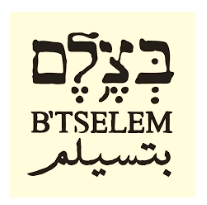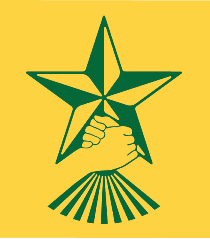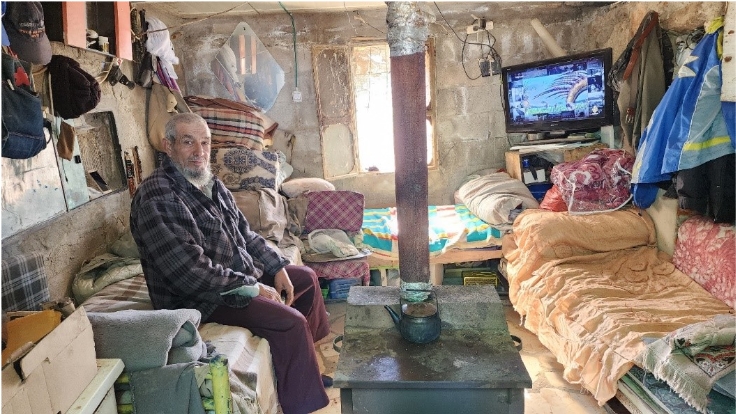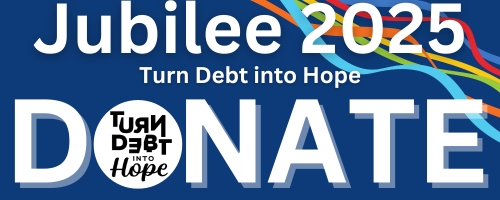Middle East
B’TSELEM |
The Department of Service to Palestinian Refugees (DSPR) is a Middle East Council of Churches department |
Wi’am |
B’Tselem – The Israeli Information Center for Human Rights in the Occupied Territories.

Website: https://www.btselem.org/
Global partner since: 2021
Country: With offices in East Jerusalem, they work throughout Areas A, B, and C in Israel and the West Bank—Palestine.
Focus: improve B’Tselem’s ability to store and protect the vast amounts of information, media, and documentation collected over its 34-year history on our website, data, document, and video servers from disasters and accidents as well as attacks on B’Tselem that aim to silence criticism of Israel’s occupation of the Palestinian territories.
Since 1989, B’Tselem has been documenting, researching and publishing statistics, testimonies, video footage, position papers and reports on human rights violations committed by Israel in the Occupied Territories. The organization strives for a future in which human rights, liberty and equality are guaranteed to all Palestinian and Jewish people living between the Jordan River and the Mediterranean Sea, a future that will only be possible when the Israeli occupation ends. B’Tselem (in Hebrew literally: in the image of), the name chosen for the organization by the late Member of Knesset Yossi Sarid, is an allusion to Genesis 1:27: “And God created humankind in His image. In the image of God did He create them.” The name expresses the universal and Jewish moral edict to respect and uphold the human rights of all people.

The Department of Service to Palestinian Refugees (DSPR) is a Middle East Council of Churches department.

Website: https://dspr.org/
Country: With offices in East Jerusalem, they focus their work in Areas B and C in the West Bank – Palestine.
Global partner since: 2001
The Department of Service to Palestinian Refugees “DSPR” of the Middle East Council of Churches “MECC” started in 1948 as an ad-hoc ecumenical group with both international and local spirited clergy and lay people to tend to the trauma of over 726,000 Palestinian refugees from the first Arab-Israeli war. DSPR eventually evolved into five Area Committees, one each in Jerusalem and West Bank, Jordan, Lebanon, Galilee, and the Gaza Strip, coordinated through a Central Office that has been located in East Jerusalem since 1997. DSPR was initially registered in Cyprus in 1970, where members from all over the region met regularly. It became part of the MECC (Middle East Council of Churches) when it was established in 1974.
DSPR reflects the Christian core values in its witness and Diakonia in partnership with local and global actors. It fosters and advances socio-economic conditions for Palestinians by providing health, education, environmental, economic, social and humanitarian programs with the realization of fundamental human rights. DSPR also advocates for an end to the Israeli Occupation of Palestinian Territories. Historically, KAIROS has supported DSPR’s vocational training and health care programs in Gaza and land reclamation and water projects in the West Bank.

Wi’am: The Palestinian Conflict Transformation Center.

Website: https://www.alaslah.org/
Country: With offices in Bethlehem, Area C under the Palestinian Authority, they focus their work in Areas B and C in the West Bank – Palestine.
Global Partner since: 2011
When Wi’am opened its doors in 1994, people living in the West Bank did not accept the authority of the Israeli military occupation, and there was no clear Palestinian authority outside of Gaza and Jericho. Since many of the traditional village leaders (mukhtars) were appointed by the Israelis as part of the occupation, their legitimacy was no longer fully accepted by the community.
Wi’am: The Palestinian Conflict Transformation Center is a grassroots civil society organization based in Bethlehem. In Arabic,“wi’am” means “cordial relationships,” and developing relationships is the essence of our mission. It helps to resolve disputes within the Palestinian communities at the grassroots level by implementing the traditional Arab form of mediation, known as Sulha, along with Western models of conflict transformation. Wi’am has programs that empower children, youth, women and men, addressing the psychological and physiological consequences of long-term conflict.
Wi’am’s programming for women includes income-generating projects, employment training, legal training, and workshops on international and national laws that protect their rights. Women are also taught peace and political negotiation skills and offered treatment for psychological and physical wounds caused by the conflict. Wi’am is helping empower victims to become voices in their own defense and for community justice and peace.




